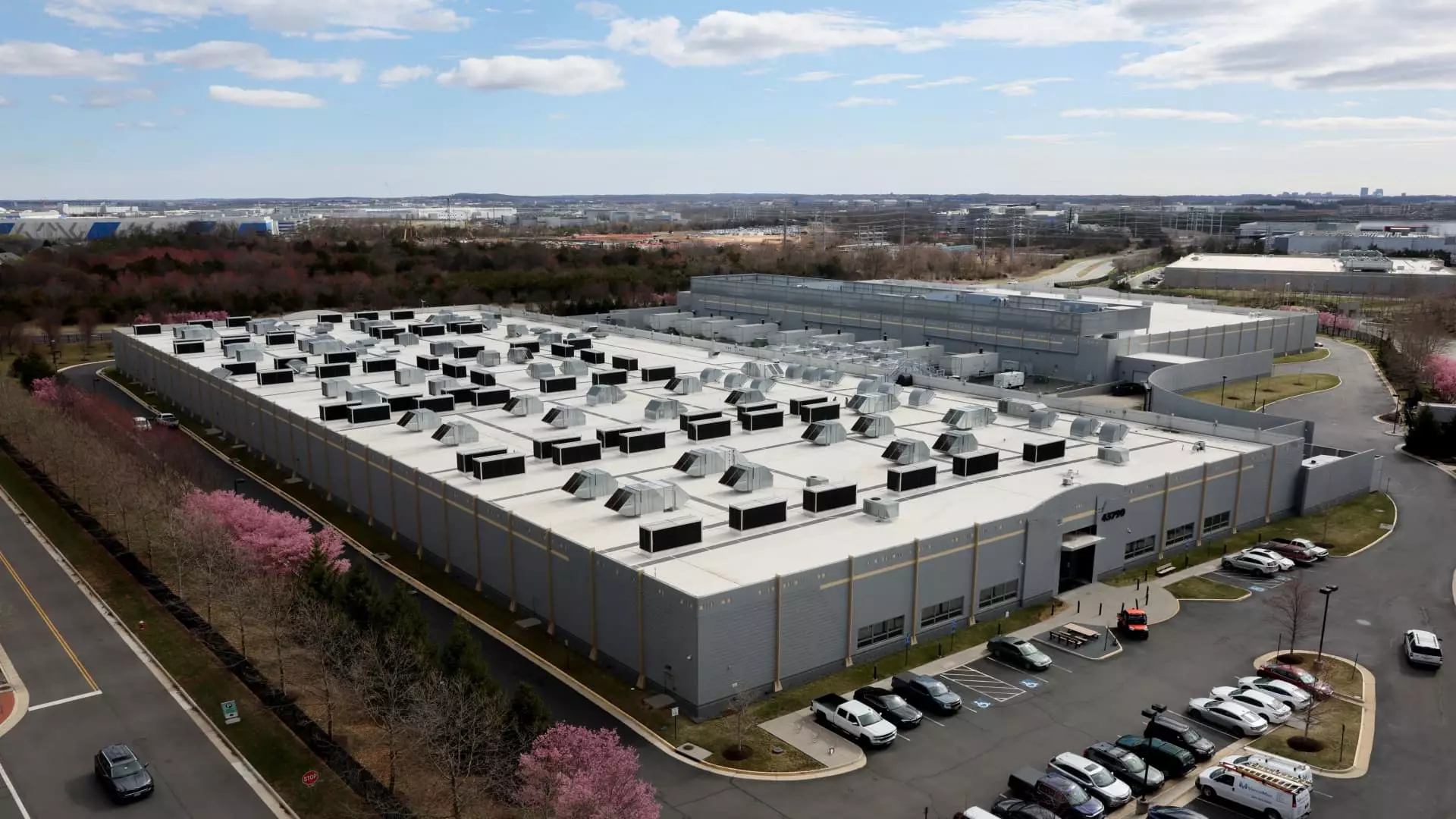In a bold move that raises both eyebrows and concerns, the newly forged partnership between the Abu Dhabi Sovereign Wealth Fund (ADQ) and American private equity firm Energy Capital Partners (ECP) emphasizes power generation—specifically to service the insatiable needs of data centers in the United States. This colossal $25 billion commitment is framed as a response to soaring electricity demand, inevitable given the tech industry’s explosive growth. However, amid the excitement, we must critically assess whether this partnership will genuinely meet future energy needs or risk locking us into a dependency on traditional energy sources at a time when innovative solutions are urgently required.
The Tenfold Rise of Data Demand
Data usage isn’t merely rising; it’s exploding. According to projections, the demand for electricity from data centers is anticipated to double or even triple by the end of this decade, transforming the energy landscape irreversibly. The International Energy Agency’s forecasts indicate that the U.S. data center sector will account for more than a third of additional electricity demand by 2026—a staggering statistic that merits consideration. As major tech corporations scramble for dominance in artificial intelligence, the infrastructure supporting these operations becomes critical, arguably too critical, as this partnership seems to reinforce our existing dependence on older methods of energy production and power generation.
In Pursuit of Sustainable Power?
On the surface, the investment aims to address the demands of high-growth industries, promising to provide reliable power through captive plants located near energy-intensive facilities. However, one must wonder whether the “sustainability” of power generation has actually been considered in this equation. While the terms “greenfield site development” and “renewable energy” glimmer in the provided narrative, it is vital to challenge how much of this investment will actually prioritize renewables over fossil fuels. The urgency for sustainable energy solutions is faster than the partnership’s plans might suggest; thus, one cannot help but be skeptical about whether ADQ and ECP possess the necessary incentives to innovate in a manner that aligns with long-term sustainability goals.
The Elephant in the Room: Economic Dependence
The U.S. is shrewdly portrayed as the focal point of technological advancement, with the Arab Gulf region positioning itself as a crucial partner. Sheikh Tahnoon bin Zayed Al Nahyan’s visit to Washington, where he mingled with significant figures like President Donald Trump and Elon Musk, adds layers to this partnership that extend beyond energy. It asks if we are unwittingly paving the way for foreign investments to tether our economic future to a model that could prove unsustainable. Are we creating a dependency on foreign finances that could dictate policies around energy management and technology innovation in the long run?
Chasing Shadows: The Race for Technological Dominance
This alignment between global financiers and local tech titans seems constructive, but one must weigh it against an emerging danger—concentration of power in few hands. As companies like Microsoft to Amazon capture increasing market shares, they aren’t just fueling energy demand; they are shaping the political and economic fabric of our society. The melding of capital and technology at the hands of a select few can lead us down a precarious path. By continuously feeding an ever-expanding system that prioritizes growth over balance, we may lose our capacity for effective governance, a fundamental pillar of a center-left viewpoint.
Alternative Approaches: A Call for a Paradigm Shift
The narrative surrounding investments such as these reveals a disconcerting trend: a failure to explore alternative models for power generation that are not only sustainable but also equitable. A partnership of this magnitude should zoom in on how energies can facilitate community-scale applications, focusing on how we promote localized, renewable energy solutions alongside extensive energy networks. As citizens, we should demand transparency and accountability from firms that are allowed to influence our resource management; partnerships like ADQ and ECP shouldn’t just be about maximizing capital returns but rather exploring innovative methods to meet evolving societal needs sustainably.
In this ever-evolving energy landscape, where advancements in artificial intelligence pose both opportunities and threats, we find ourselves on the cusp of a crucial decision: to further entrench ourselves in old paradigms or to leap into mindful and sustainable energy practices that respect both our environment and societal well-being.


Leave a Reply